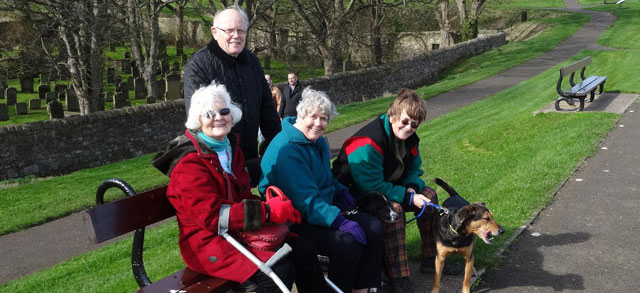
As I have said in many blogs before, recognizing when you need a break is a hard thing to do.
Caring burnout is an insidious condition.
Something you just keep doing day in and day out, with little thought or consideration for yourself… until it all comes crashing down on you.
That’s why there’s a real benefit in forward planning. It can save you a lot of time and distress.
When To Start Planning A Break
First of all, while you are still able to care for your parent or loved one without any problems, this is the time you should be planning ahead and going to look at the alternatives that are around.
If you postpone this decision to the point when you are in immediate need of a break, it will only be harder on everyone involved.
So whenever you are able to recognize that you’re going to have to be caring for a close family member, this is the time to plan what you will do if you become too exhausted.
Transparency Is Key
It is also best to make sure you are honest with your loved one as well. Discussing things with them openly is essential.
This may seem obvious, but this is one of the biggest mistakes families make…
Keeping it all under wraps. Not talking in front of them for fear of how they will react.
But they have a right to be included in the discussions. They have a right to be part of the solution. They have the right to choose, especially while they are still able to contribute.
You know, fear of the unknown is far worse than facing the fear head on because it usually is nowhere near as bad as either you or they anticipated.
Finding The Right Care Facility
So you’re taking a break. Once everyone is clear on the fact that you’re going to involve outside help in the caring process, it is time to find an appropriate caring facility.
Here’s my advice…
On a nice sunny day when you are both feeling mellow, make a decision to go and visit some residential care facilities or day programs.
In each place you visit, get the opinion of the person who may have to use the program or live in the facility.
Also, find out from the facility what they do or have available that your loved one is interested in.
How Do You Know If It’s Right?
Spend some time at these places to see how they really operate and what’s available.
Don’t just go once… maybe even go at different times of the day to see what is going on.
Once you have narrowed it down to the right place, see if your loved one can spend an hour or so there.
You may have to pay by the hour or half day or they may just be happy for you try it… but this is an important step to seeing if it’s right for your family.
How To Stay Involved In The Process
Once you’ve found the right caring facility and take your much deserved break, it’s important to stay involved in the process of caring. Even if it’s not at the same intensity as before.
You can do this by asking the caring facility when they have some programmed activities that would be good for you to attend.
Some facilities have things like mid-winter dinner, concerts, dances or regular church services. You may be more than welcome to attend them.
I’ve even seen facilities with a Men’s Shed and mending circles.
Your Visits Can Go Even Further
Of course, you can always just go visit your relatives and even other people (like their new friends) and spend some quality time talking to them.
Sadly, as you may eventually find out, there are people with families in another state or country and they have no one to visit them.
Even when you’re still deciding between caring facilities, visiting these people can be both a good way for you to know more about the place and a blessing for them.
In that vein, you can also volunteer and help with any number of things within the facility.
In my experience, extra hands are always appreciated.
It’s All About Having A Plan
As you can see, finding somewhere that both you and your loved one are comfortable with is an essential part of caring.
Even if you don’t necessarily reach the point where you need to take a break, setting up a good relationship with a potential residential care facility or a day program, makes it easier for both of you, if and when the time comes.
Also, as I always stress, it’s another thing you can do together. Make it an activity to be enjoyed and not a chore to be avoided.
Lastly, if you have reached the point where you need to take a break from caring but haven’t done any of this beforehand, just hang in there.
Hopefully you can take some of the above measures along with your loved one.
It’s never too late to do things right!




